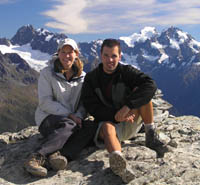Reflections
1. Politics: What is the role of First World countries with regard to the rest of the world? Under what circumstances should the United Nations or individual western countries like the United States intervene in global conflicts? What leadership role should the First World nations have?
2. Economics: Why are certain countries more prosperous than others? Why have such diverse economic systems developed, and what system is best for any given population? How can countries improve their economic status in the world?
3. Human Rights: What are human rights, and how do we ensure such rights are protected? How do people satisfy their basic needs and maintain a standard of living? Whose responsibility is it to ensure people have access to clean air and clean water? What can we learn from past human rights violations and other governmental atrocities, and how do we prevent them in the future? What methods are in place to alleviate rampant worldwide starvation and disease? How can human suffering be reduced or alleviated?
4. Overpopulation: What factors cause overpopulation? What are the consequences of overpopulation? What tactics can be used to control population growth, and are such methods ethical? What is the appropriate population density for a given area, and what are the pros and cons of urban and rural locations?
5. Education: Why don’t children around the world have equal access to education? How can education standards be improved worldwide?
6. Environment: Is taking care of the environment a necessity or a luxury? How do environmental protection methods and ideals jive with economic goals and needs? How can someone who is on the verge of starvation worry about whether or not to recycle?
7. Religion: What is the role of religion? Why is religious conflict so widespread, and what can be done to eliminate it? Can traditional religious ideals be effective in a dynamic, evolving modern world, and if not, can or should they evolve as well?
8. Women’s Rights: What rights do (or should) women have in society? How do you change a culture’s expectations regarding women? Can the dowry system, purdah, self-immolations, and other social injustices against women be abolished? Should they? How?
9. Colonization: Why was colonization so widespread? What were the effects? Why does it continue?
10. Globalization: Should the United States and the rest of the westernized world be exploiting the affordable labor and resources of the third world? How can tribal people continue their way of life in an ever-changing modern society? What are the effects of the vast spread of American influence (products, movies, television, music) on the cultures of less developed nations?

Every one of these issues is intertwined, and all are exceptionally complicated. The more we ponder and research these questions, the more we realize that there are no easy answers. The world is not simply black and white, right or wrong, and there are a myriad of factors that influence every issue. Yet, despite our lack of answers, we feel fortunate just to have been here to face these questions. It is a learning process that more people should take the opportunity to experience. After all, as Confucius said, one day of travel is better than reading 1,000 books.

Post a Comment
<< Home